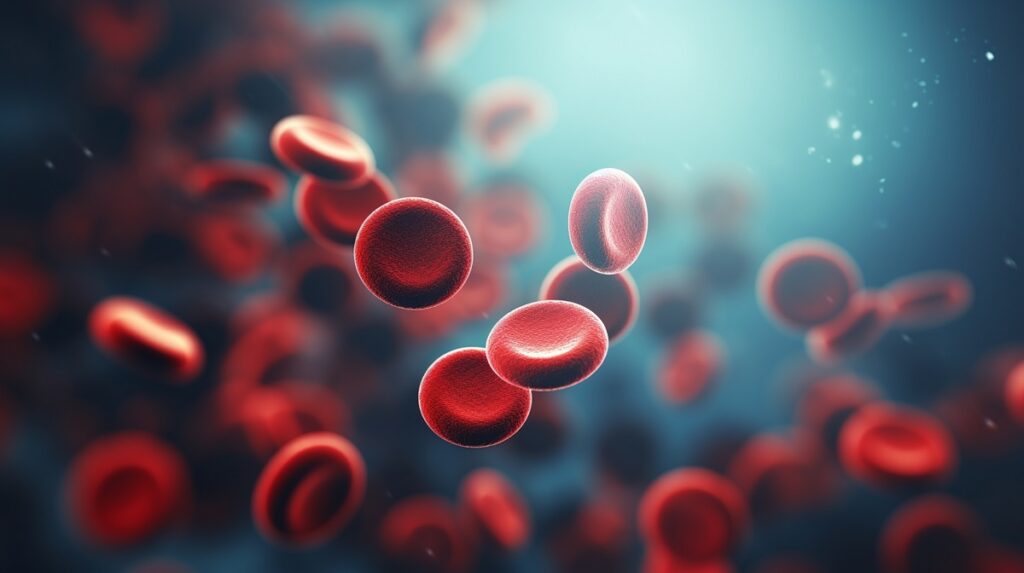Type 2 diabetes is a chronic condition that affects the way the body metabolizes glucose, a critical source of fuel for the body’s cells. Unlike type 1 diabetes, where the body fails to produce insulin, type 2 diabetes is characterized by insulin resistance, where the body does not use insulin efficiently. Over time, this can lead to a variety of health issues, particularly if the condition is not managed properly. Type 2 diabetes symptoms in men and related factors are essential to recognize for early diagnosis and effective management.

Prevalence and Risk Factors
Type 2 diabetes is more common in men than in women, and understanding the reasons behind this can help highlight the importance of awareness and proactive health measures. Several factors contribute to the higher prevalence in men, including lifestyle choices, genetic predispositions, and hormonal differences. Men are often more likely to engage in behaviors such as smoking and excessive alcohol consumption, both of which are risk factors for developing type 2 diabetes. Additionally, men tend to accumulate visceral fat around the abdomen, which is closely associated with insulin resistance.
General Symptoms of Type 2 Diabetes
Before delving into the specific symptoms men might experience, it’s important to outline the general symptoms of type 2 diabetes. These symptoms can include:
- Increased Thirst and Frequent Urination: High blood sugar levels cause the kidneys to work overtime to filter and absorb excess sugar. When they can’t keep up, the excess sugar is excreted into the urine, dragging along fluids from your tissues. This triggers more frequent urination, which can lead to dehydration and increased thirst.
- Increased Hunger: Without enough insulin to move sugar into cells, muscles and organs become depleted of energy. This triggers intense hunger.
- Weight Loss: Despite eating more than usual to relieve hunger, you may lose weight. Without the ability to metabolize glucose, the body uses alternative fuels stored in muscle and fat.
- Fatigue: If your cells are deprived of sugar, you may become tired and irritable.
- Blurred Vision: High blood sugar levels can lead to the extraction of fluid from the lenses of the eyes, affecting the ability to focus.
- Slow-Healing Sores and Frequent Infections: Type 2 diabetes affects your ability to heal and resist infections. Bladder and skin infections are common.
- Areas of Darkened Skin: Some people with type 2 diabetes have patches of dark, velvety skin in the folds and creases of their bodies, usually in the armpits and neck. This condition, called acanthosis nigricans, may be a sign of insulin resistance.
Specific Type 2 Diabetes Symptoms in Men
While the symptoms listed above are common to both men and women, men might experience additional symptoms specific to their gender. Recognizing these symptoms can lead to earlier diagnosis and treatment, improving the overall prognosis.
Sexual Health Issues
Men with type 2 diabetes frequently experience sexual health issues due to the disease’s impact on blood vessels and nerves. These problems can include:
- Erectile Dysfunction (ED): This is one of the most significant and distressing symptoms for men with type 2 diabetes. High blood sugar levels can damage the blood vessels and nerves responsible for an erection. Studies indicate that men with diabetes are three times more likely to experience ED than those without the condition.
- Retrograde Ejaculation: This occurs when semen enters the bladder instead of exiting through the penis during ejaculation. It can be a result of nerve damage caused by prolonged high blood sugar levels.
- Reduced Libido: Hormonal imbalances, including lower levels of testosterone, can lead to a decrease in sexual desire. Testosterone deficiency is more common in men with type 2 diabetes, potentially affecting libido and energy levels.
Urological Problems
Type 2 diabetes can also affect the urinary system in men, leading to:
- Frequent Urinary Tract Infections (UTIs): High blood sugar levels create an environment conducive to bacterial growth, leading to frequent UTIs. Symptoms include a burning sensation during urination, cloudy urine, and pelvic pain.
- Bladder Dysfunction: Nerve damage from prolonged diabetes can affect bladder function, causing issues such as overactive bladder or difficulty in completely emptying the bladder.
Psychological Symptoms
Men with type 2 diabetes may experience psychological symptoms that can affect their overall well-being:
- Depression and Anxiety: The chronic nature of diabetes, combined with its physical effects, can lead to mental health issues such as depression and anxiety. Men might find it challenging to cope with the lifestyle changes and ongoing management required for diabetes.
- Cognitive Decline: Emerging research suggests that type 2 diabetes might be linked to an increased risk of cognitive decline and dementia. High blood sugar levels can affect brain function, leading to memory issues and difficulties with concentration.
Complications of Untreated Type 2 Diabetes
If type 2 diabetes is left untreated or not managed effectively, it can lead to severe complications that can significantly impact a man’s quality of life. These complications include:
- Cardiovascular Disease: Men with diabetes are at higher risk for heart disease and stroke. High blood sugar levels can damage blood vessels and lead to atherosclerosis (hardening of the arteries).
- Nerve Damage (Neuropathy): Excess sugar can injure the walls of the tiny blood vessels that nourish nerves, especially in the legs. This can cause tingling, numbness, burning, or pain that usually begins at the tips of the toes or fingers and gradually spreads upward.
- Kidney Damage (Nephropathy): The kidneys contain millions of tiny blood vessel clusters that filter waste from the blood. Diabetes can damage this delicate filtering system. Severe damage can lead to kidney failure or irreversible end-stage kidney disease, which may require dialysis or a kidney transplant.
- Eye Damage (Retinopathy): Diabetes can damage the blood vessels of the retina, potentially leading to blindness. Diabetes also increases the risk of other serious vision conditions, such as cataracts and glaucoma.
- Foot Damage: Nerve damage in the feet or poor blood flow to the feet increases the risk of various foot complications. Left untreated, cuts and blisters can develop serious infections, often heal poorly, and may ultimately require toe, foot, or leg amputation.
- Hearing Impairment: Diabetes can lead to hearing problems.
- Skin Conditions: Diabetes may leave you more susceptible to skin problems, including bacterial and fungal infections.
- Sleep Apnea: Obstructive sleep apnea is common in men with type 2 diabetes. Obesity may be the main contributing factor to both conditions.
Diagnosis and Management of Type 2 Diabetes Symptoms in Men
Early diagnosis and effective management of type 2 diabetes are crucial for preventing complications. Men should be particularly vigilant if they have risk factors such as obesity, a sedentary lifestyle, a family history of diabetes, high blood pressure, or high cholesterol levels. Regular screenings, such as fasting blood sugar tests, HbA1c tests, and glucose tolerance tests, can help detect diabetes early.
Lifestyle Changes
The cornerstone of managing type 2 diabetes involves significant lifestyle changes, which include:
- Healthy Eating: A balanced diet that emphasizes whole grains, fruits, vegetables, lean proteins, and healthy fats can help control blood sugar levels. Men should avoid processed foods, sugary drinks, and excessive alcohol consumption.
- Regular Physical Activity: Exercise helps to lower blood sugar levels and increase insulin sensitivity. Men should aim for at least 150 minutes of moderate aerobic activity or 75 minutes of vigorous activity per week, along with muscle-strengthening exercises.
- Weight Management: Achieving and maintaining a healthy weight is crucial. Even a small amount of weight loss can improve insulin sensitivity and blood sugar control.
- Stress Management: Chronic stress can affect blood sugar levels. Techniques such as yoga, meditation, and deep-breathing exercises can be beneficial.
Medications
In addition to lifestyle changes, men with type 2 diabetes may need medications to help control their blood sugar levels. These can include:
- Metformin: This is often the first medication prescribed for type 2 diabetes. It works by reducing glucose production in the liver and improving the body’s sensitivity to insulin.
- Sulfonylureas: These drugs help the body secrete more insulin.
- Meglitinides: These work faster than sulfonylureas and are taken with meals to quickly lower blood sugar levels.
- Thiazolidinediones: These improve insulin sensitivity but have potential side effects such as weight gain and increased risk of heart failure.
- DPP-4 Inhibitors: These help reduce blood sugar levels without causing hypoglycemia.
- GLP-1 Receptor Agonists: These slow digestion and help lower blood sugar levels, often with the added benefit of weight loss.
- SGLT2 Inhibitors: These prevent the kidneys from reabsorbing sugar into the blood.
- Insulin Therapy: In some cases, insulin therapy may be necessary to manage blood sugar levels effectively.
Regular Monitoring
Men with type 2 diabetes should regularly monitor their blood sugar levels to ensure they remain within target ranges. This can involve using a blood glucose meter or a continuous glucose monitor (CGM). Regular monitoring helps in making necessary adjustments to diet, activity levels, or medications.
Conclusion
Type 2 diabetes symptoms in men are manageable condition, but it requires awareness, proactive management, and lifestyle changes, especially for men who may experience unique symptoms and health challenges. By understanding the specific symptoms and complications associated with type 2 diabetes in men, individuals can seek early diagnosis and appropriate treatment. Regular medical check-ups, adherence to prescribed treatments, and a healthy lifestyle are crucial in managing type 2 diabetes and maintaining a good quality of life.


